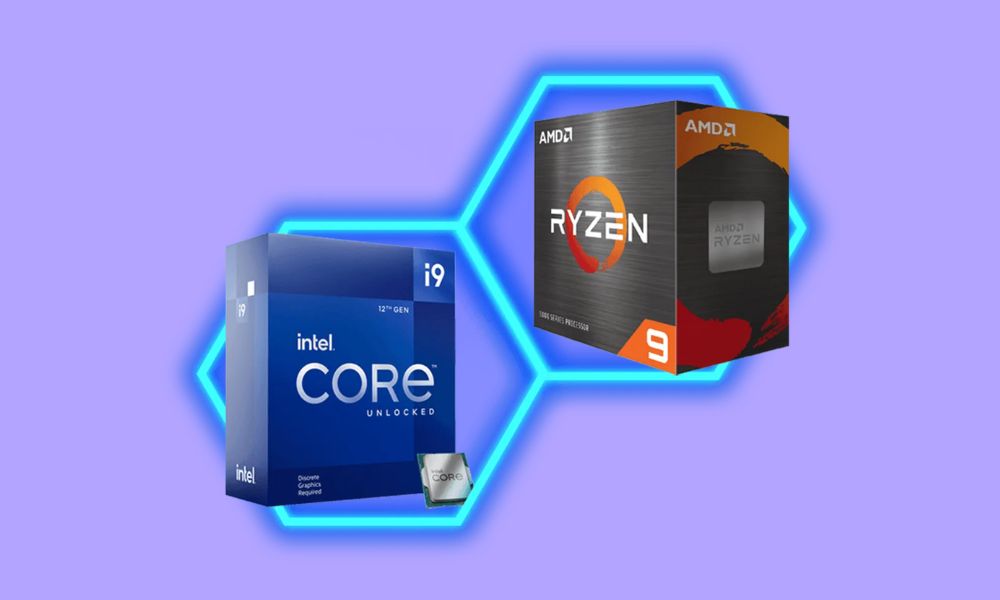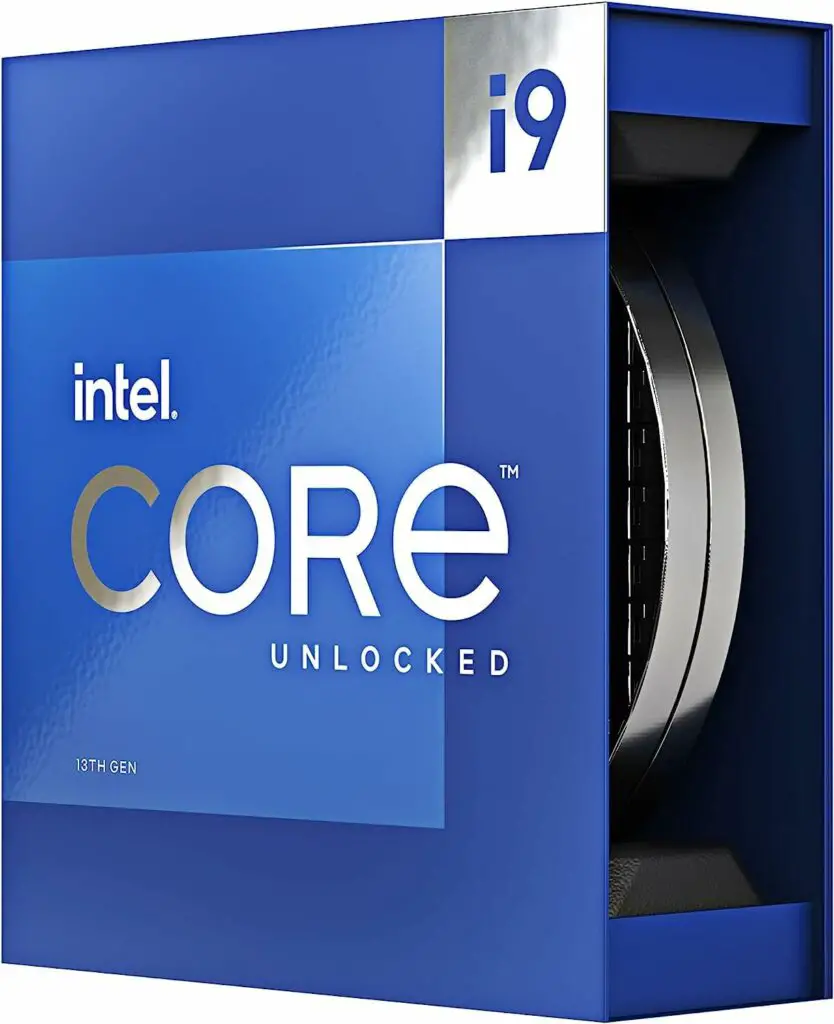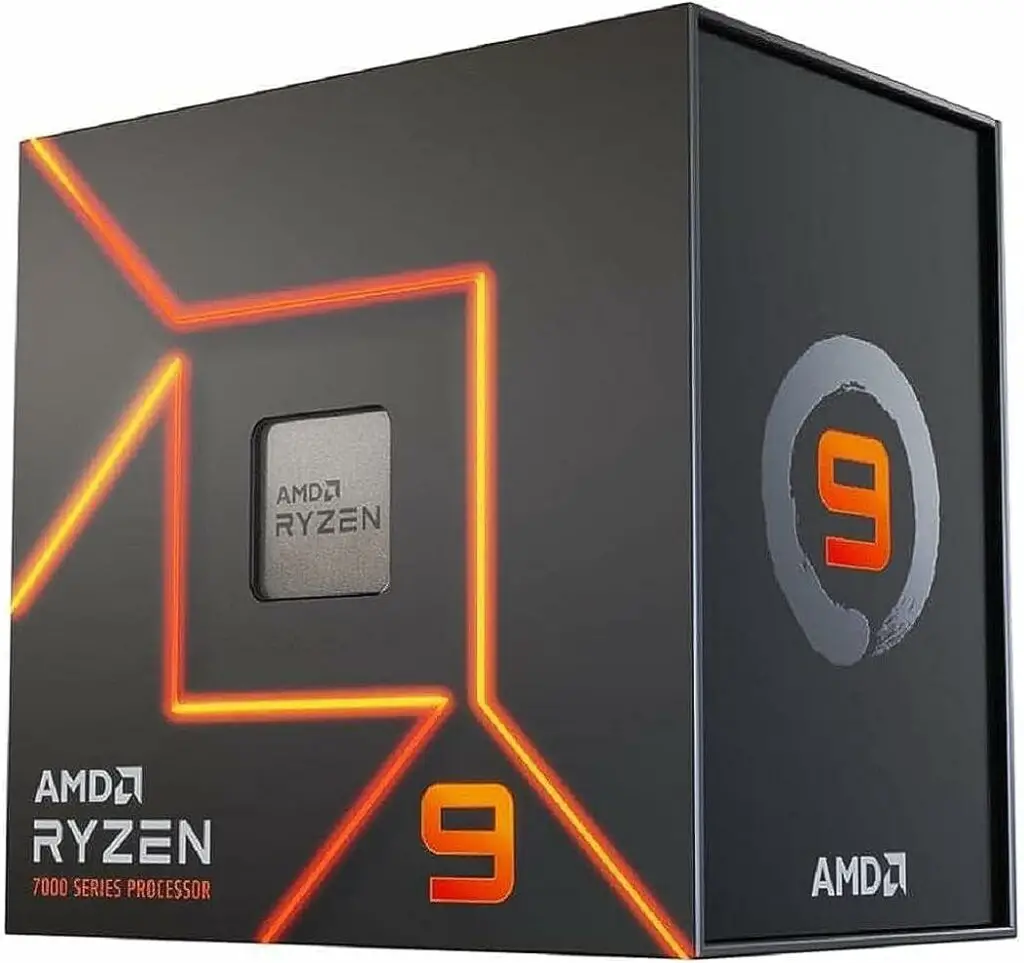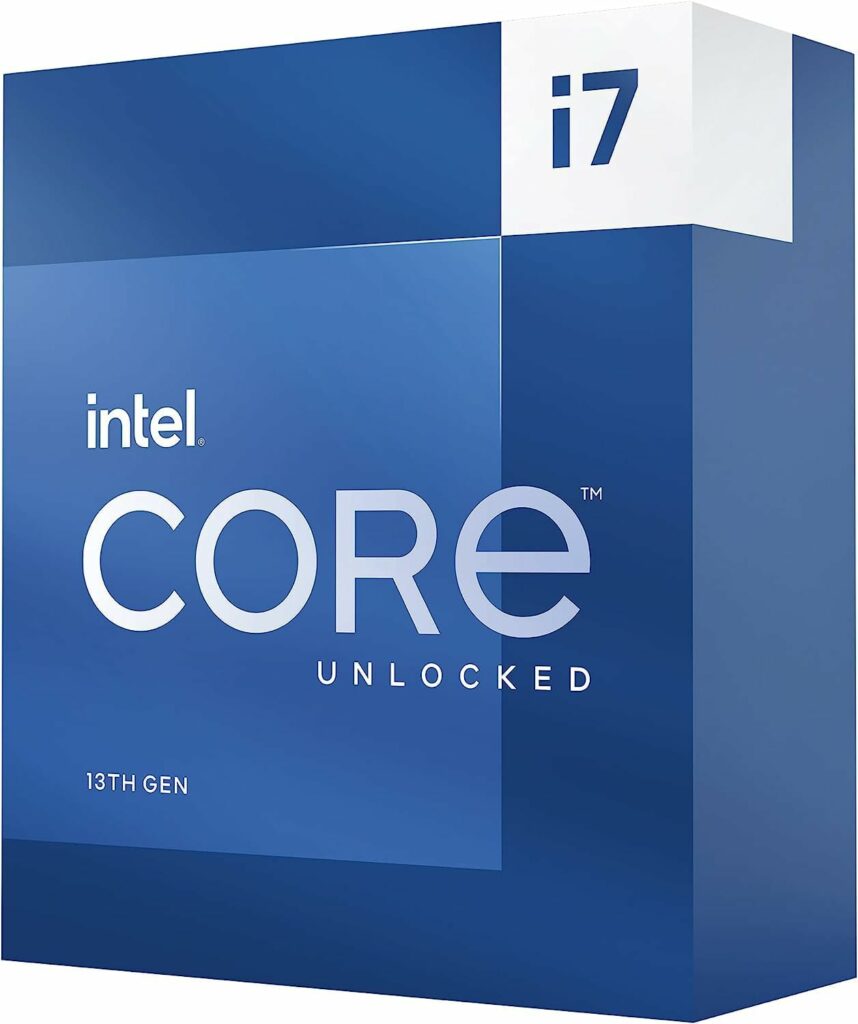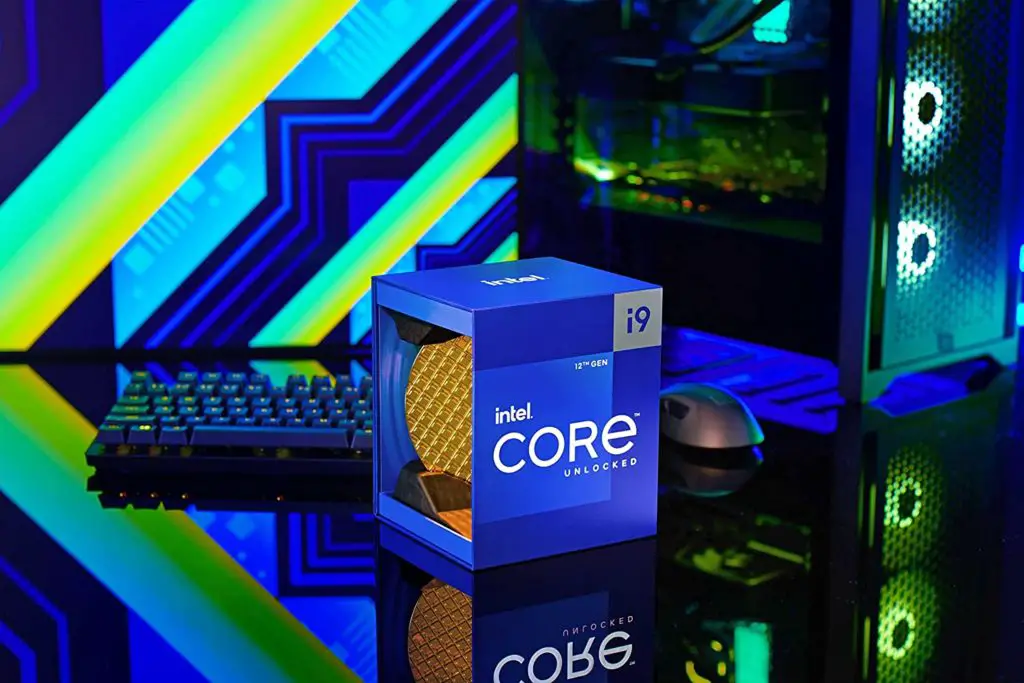Our top picks for the best processor to choose for Virtualization from Running Multiple Virtual Machines to Home Server Virtualization.
Virtualization is such a process that allows you to create virtual networks, servers and storage capacities on one machine. Does the CPU matter for virtualization? Yes a desktop processor is needed for virtualization.
A compatible processor that is properly configured is necessary for virtualization. Because a misconfigured CPU can affect your Virtualization in a negative way.
An efficient desktop processor enables you to handle multiple virtual resources simultaneously. Go for a processor with less clock speed because for virtualization high speed is not required.
Intel and AMD are well known names for processor production. Both are good to run a virtual machine, you can choose any of them. AMD offers Execute Disabled or Intel comes with No Execute feature. This feature strict your processor to not run code in those areas where there’s a high risk of malware attacks. Plus, they also provide you SAHF and LAHF commands that are compulsory for better resource allocation.
If you need to run multiple virtual machines simultaneously, AMD CPUs are a good option because they offer more cores and threads per CPU. However, if you need the best possible single-core performance or advanced features like Intel VT-d, then Intel CPUs are a better choice.
Our Recommended list of the Best CPU for virtualization
- Intel Core i9-13900K : Overall Best CPU for virtualization
- AMD Ryzen 9 7950X : Best CPU for Running Multiple Virtual Machines
- Intel Core i7-13700K : Best CPU for Home Server Virtualization
- AMD Ryzen 9 5900X : Best AMD CPU for virtualization
- Intel Core i9-12900K
Our virtualization CPU Selections, all compared with each other, and different types:
| CPU | Cores | Threads | Clock Speed | Turbo Boost | L3 Cache | Virtualization Features | Best For |
|---|---|---|---|---|---|---|---|
| Intel Core i9-13900K | 16 | 24 | 5.5 GHz | 5.8 GHz | 30 MB | Intel VT-x, VT-d, Intel TXT, Intel AES-NI | Overall best CPU for virtualization |
| AMD Ryzen 9 7950X | 16 | 32 | 5.0 GHz | 5.5 GHz | 64 MB | AMD-V, AMD-Vi, AMD Secure Encrypted Virtualization | Best CPU for running multiple virtual machines |
| Intel Core i7-13700K | 8 | 16 | 5.0 GHz | 5.4 GHz | 25 MB | Intel VT-x, VT-d, Intel TXT, Intel AES-NI | Best CPU for home server virtualization |
| AMD Ryzen 9 5900X | 12 | 24 | 4.9 GHz | 5.0 GHz | 64 MB | AMD-V, AMD-Vi, AMD Secure Encrypted Virtualization | Best AMD CPU for virtualization |
| Intel Core i9-12900K | 12 | 24 | 5.2 GHz | 5.5 GHz | 24 MB | Intel VT-x, VT-d, Intel TXT, Intel AES-NI | High-end CPU for virtualization |
1. Intel Core i9-13900K : Overall Best CPU for virtualization
Let’s start with overall best cpu for virtualization that is Intel Core i9-13900K. This CPU is powerful enough to can run multiple virtual machines simultaneously without slowing down.
It has 16 cores and 24 threads, which provide plenty of processing power for running multiple virtual machines. It also has a high boost frequency of up to 5.8 GHz, which can help to improve the performance and responsiveness of your virtual machines.
The i9-13900K also has a large cache size of 36 MB and supports DDR5-4800 memory. This means that it can access data and instructions quickly, which is important for virtualization workloads. The processor also has a high memory bandwidth of 89.6 GB/s, which can help to reduce latency and improve the performance of your virtual machines.
In addition, the i9-13900K supports a number of virtualization technologies, including Intel VT-x, Intel VT-d, Intel EPT, and Intel TSX-NI. These technologies help to improve the efficiency and security of running multiple virtual machines.
The processor also supports Intel Thread Director, which can help to optimize the scheduling of your virtual machines based on their workload characteristics.
Finally, the i9-13900K supports Intel Gaussian & Neural Accelerator 3.0 and Intel Deep Learning Boost. These technologies can help to accelerate artificial intelligence and machine learning applications running on your virtual machines.
2. AMD Ryzen 9 7950X : Best CPU for Running Multiple Virtual Machines
The AMD Ryzen 9 7950X is a powerful and versatile desktop processor that can handle multiple virtual machines with ease. With the power of its 16 cores and 32 threads, it can run up to 32 virtual machines simultaneously, depending on the memory and storage capacity of the host system.
It also has a high base clock of 4.5 GHz and a boost clock of up to 5.7 GHz, which gives it excellent performance for demanding workloads. The Ryzen 9 7950X supports DDR5 memory, PCIe® 5.0, and AMD EXPO™ Technology, which enhances the efficiency and security of virtualization.
The processor is compatible with Windows 11, Windows 10, RHEL, and Ubuntu operating systems. The Ryzen™ 9 7950X also supports technologies like AMD Virtualization (AMD-V), which enhances hardware support for virtualization. This aids in smoother VM management and operation, minimizing potential bottlenecks and compatibility issues.
To truly maximize the potential of the Ryzen™ 9 7950X for this use case, pairing it with ample high-speed RAM and fast storage solutions would be advisable.
Additionally, it also has a low power consumption of 170 W and a reasonable price, which makes it perfect for content creators, gamers, and professionals who need to run multiple applications on a virtual network.
3. Intel Core i7-13700K : Best CPU for Home Server Virtualization
The Intel Core i7-13700K is the best CPUs available for home server virtualization workloads. With its combination of 16 cores (8 performance cores and 8 efficient cores) and 24 threads, it provides exceptional multi-threaded performance for running multiple virtual machines.
Excellent single-threaded speed on the P-cores, which helps for virtual machines that are lightly threaded. In benchmarks, it outperforms AMD’s Ryzen 7000 series. Plenty of cores and threads to handle multi-VM workloads. The 8 P-cores and 24 threads give you a lot of flexibility.
Good power efficiency when using the E-cores, resulting in lower electricity costs for always-on virtualization. Supports crucial virtualization features like Intel VT-x, VT-d, and EPT for VM performance.
Integrated UHD graphics 770 is handy for basic video output if you don’t need a discrete GPU.
The Core i7-13700K is an excellent choice for running VMs, containers, and other virtualization workloads in a home lab or small server environment. It provides top-tier single and multi-threaded performance while keeping power efficiency manageable. As long as you don’t need an extremely high core count, it’s a great virtualization CPU option.
4. AMD Ryzen 9 5900X
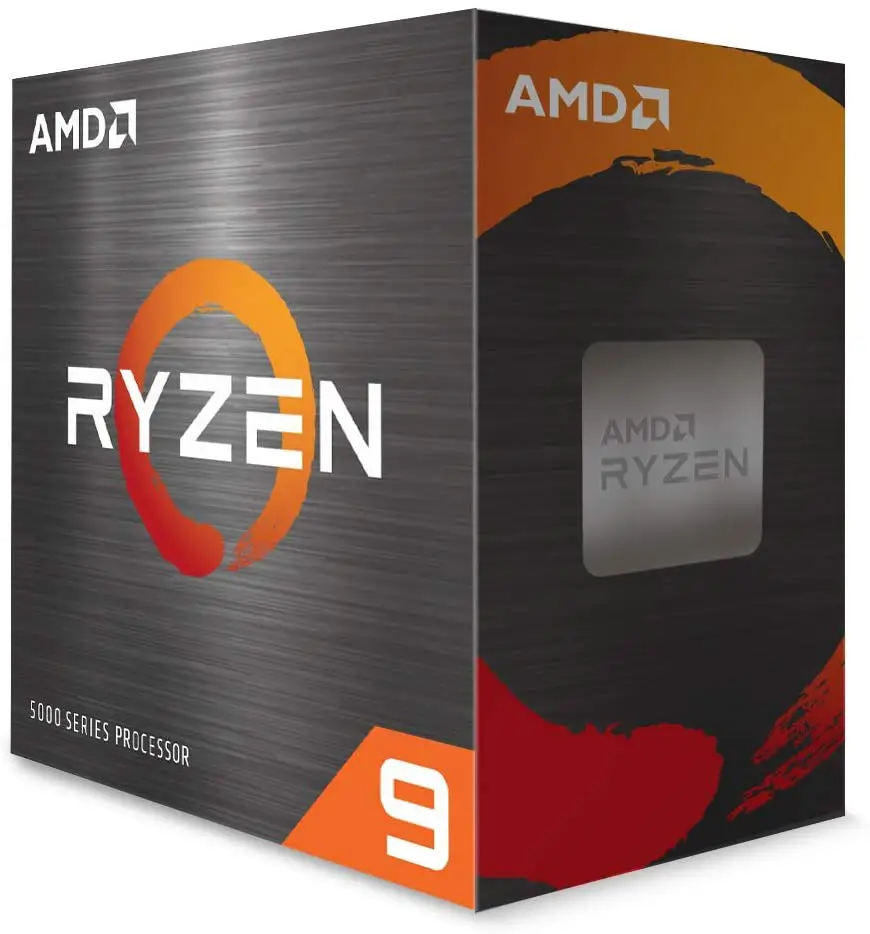
When it comes to the best AMD CPU for virtualization, the AMD Ryzen 9 5900X can be an ideal choice for you. An incredible desktop processor that is currently available on the tech market. Bundled with 12 cores and 24 threads which enables you to perform well in most demanded games of the world.
The AMD Ryzen 9 5900X 12-core Desktop Processor is a powerful CPU that can handle Hyper-V and running multiple virtual machines very well.
This unlocked processor is ready to handle anything that you throw at it with the speed up to a 4.8 GHz. Ryzen 9 5900X is compatible with the motherboards of the 500 series. Comes with a CPU socket that is AM4 with which you can install it on PCB.
AMD Ryzen 9 5900X can be used for virtualization, you can go for this CPU. Even if you want to design your gaming desktop then also you can consider. Plus, its unlocked design allows you to push its speed to the limit and enjoy your heart’s desired content. it has also supported by Radeon RX 6750 XT and other desktop processors like RTX 3090Ti , 3070 Ti and RTX 3080 Ti.
Furthermore, this desktop CPU offers exactly everything that you need to deliver elite performance in games. Supported memory is DDR-3200 that is good enough to run anything, even multiple operating systems. Supports maximum temperature 90 celsius that is fine for your computer system.
PCIe 4.0 support enables you to use your latest GPUs and SSDs and enjoy their full potential. Some users do like that the CPU cooler is not included and also a bit more expensive as compared to its predecessor.
5. Intel Core i9-12900K
Are you looking for the best Intel CPU for virtualization that handles the most demanding tasks? Look no further than Intel Core i9-12900K. Engineered with amazing features like 16 (8P+8E) cores. It is an unlocked processor which means you can kick its speed up to 5.2 GHz.
This is an ideal choice for gamers, power users, and anyone who requires fast usage experience from their computer system. You have enough power and have better control on your hardware due having unlocked multiplier. That enables you to customize your computer system with ease to get the best performance possible.
Furthermore, this is a top-of-the-line desktop processor and worth your penny-penny. This CPU offers such power that you can take your gaming and creative work performance to the next level. Core i9-12900K is a perfect purchase for those who do not compromise on performance of their gaming system.
Designed with 30 MB of L3 cache that enables you to quickly and easily access data and improve its overall performance. The 10 nm design makes it power efficient so your system lasts for a longer time without getting overheated. Due to amazing features it will handle anything that you will throw at this processor.
The CPU socket is LGA 1700 which allows you for easy installation on your system. Constructed with the Intel 7 Architecture that enhances performance per watt so your computer system can work efficiently. Best of all its power computation is less than its previous models. But it’s expensive and does not support Windows 10.
How to Choose Best CPU for Virtualization
Here are some key factors to consider when selecting the best CPU for virtualization:
- Cores/Threads – More cores and threads allow you to run more virtual machines smoothly. Look for at least 4 cores minimum, with 6-8+ cores ideal for virtualization workloads.
- Clock Speed – Faster clock speeds and turbo boost deliver better single-threaded VM performance. Aim for 3GHz or higher base frequency.
- Overclocking Support – Unlocked CPUs allow overclocking to improve VM performance. This is a nice bonus but not required.
- Virtualization Features – Make sure the CPU supports hardware virtualization features like Intel VT-x/EPT or AMD-V/IOMMU. This provides better VM efficiency.
- Memory Support – Look for CPU/platform combos that support higher RAM capacities and faster speeds. More memory channels can also help.
- PCIe Lanes – More PCIe lanes allow you to connect more devices like storage, GPUs and NICs for virtualization.
- Power Efficiency – CPUs and platforms with power efficiency features help lower electrical costs for always-on virtualization usage.
- Budget – Server-grade CPUs offer the best performance but are expensive. Consumer CPUs offer more cores per dollar.
- Workload Types – Consider if you’ll run lots of lightweight VMs or fewer resource-intensive VMs.
- Platform Features – The chipset and platform also impact features like number of PCIe lanes.
Balancing these factors will help you select the right CPU model for your virtualization goals and budget. Focus on cores/threads, speeds, memory support and virtualization features first.
AMD vs Intel
AMD and Intel both are the leading names of the tech world for producing desktop processors and other computer hardware components. These CPUs are bundled with virtualization features such as Intel offers VT-x, VT-d and AMD’s processors have AMD-V and AMD-Vi.
One common feature that is offered by both AMD and Intel is memory space isolation. Intel provides NX features and AMD comes with XD, but both are the same. Both enable the CPU to not run code in protected areas.
You can choose processors manufactured by AMD and Intel. The only factor that affects your choice is your required features and choice of hypervisor and its specific support for your CPU. Do you think ryzen is good for virtualization? Yes it is also a better option to run a Virtual machine. We also included a few options from the Ryzen series for the best CPU for virtualization.
Conclusion
When it comes to selecting the right CPU for virtualization, there are some great options from both Intel and AMD to consider. The Intel Core i9-13900K takes the crown as the overall best CPU for virtualization with its incredible performance, 24 cores, and robust platform features.
If your priority is running a high number of virtual machines efficiently, the AMD Ryzen 9 7950X is an excellent choice thanks to its 16 cores, good speeds, and competitive pricing. For home lab server virtualization on a budget, the Intel Core i7-13700K offers a sweet spot with 16 cores, high clock speeds, and an unlocked design.
For those focused on the AMD ecosystem, the Ryzen 9 5900X remains a virtualization favorite with 12 fast cores and excellent efficiency. And Intel’s Core i9-12900K, while now a generation old, still provides great performance for virtualization with its hybrid architecture.
No matter your specific virtualization needs and budget, there is a top-tier CPU option from Intel or AMD that can handle your virtualized workloads with power and efficiency. Focus on cores, speeds, memory support, and platform capabilities as you choose the best CPU for your virtualization goals.
